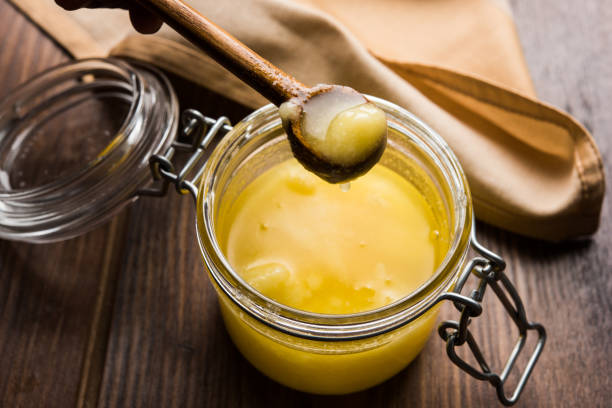
When it comes to cooking oils and spreads, two popular options often find themselves head-to-head in culinary debates: ghee and butter. While both are derived from milk and possess a similar rich, creamy flavor, they do have distinct characteristics that set them apart.
Ghee, a staple in Indian cuisine for centuries, is essentially clarified butter. The process involves simmering unsalted butter until the water content evaporates, leaving behind pure butterfat. The result is a golden, nutty-tasting substance with a higher smoke point than butter, making it suitable for high-temperature cooking methods like frying and sautéing.
One of the key differences between ghee and butter lies in their composition. Ghee is lactose-free and contains negligible amounts of casein and whey proteins, which are the components of dairy that some people may be intolerant to. Therefore, ghee is often favored by those with lactose sensitivities or dietary restrictions.
Additionally, ghee has a longer shelf life compared to butter due to its reduced moisture content. The absence of water makes ghee less prone to spoilage, allowing it to be stored at room temperature for extended periods without refrigeration.
In terms of flavor, ghee possesses a unique, slightly nutty taste that is distinct from butter. This flavor intensifies during the clarification process, lending a delightful aroma to dishes it is incorporated into. Its rich and aromatic qualities make ghee a popular choice for enhancing the flavors of Indian curries, roasted vegetables, and even baked goods.
While butter offers a creamy and indulgent experience, it may not be ideal for high-heat cooking due to its lower smoke point and water content. However, it still remains a beloved choice for spreading on toast or adding a touch of richness to sauces and desserts.
Ultimately, the choice between ghee and butter boils down to personal preference and specific culinary requirements. Ghee’s higher smoke point, longer shelf life, and lactose-free nature make it a versatile and practical option, especially for those with dietary restrictions. Butter, on the other hand, is prized for its familiar taste and texture, perfect for those who crave a classic buttery experience.
So, whether you opt for the aromatic nuttiness of ghee or the familiar creaminess of butter, both have their rightful place in the kitchen, ready to elevate your culinary creations with their unique qualities.
Also see: Can you eat a stringy avocado?




